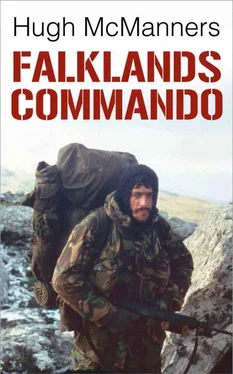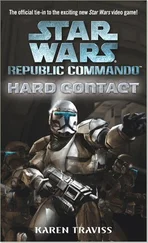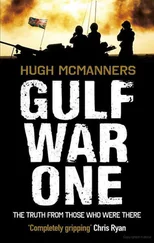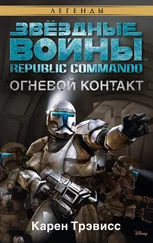Hugh McManners - Falklands Commando
Здесь есть возможность читать онлайн «Hugh McManners - Falklands Commando» весь текст электронной книги совершенно бесплатно (целиком полную версию без сокращений). В некоторых случаях можно слушать аудио, скачать через торрент в формате fb2 и присутствует краткое содержание. Город: London, Год выпуска: 2014, ISBN: 2014, Издательство: Nightstrike Publishing, Жанр: nonf_military, Биографии и Мемуары, на английском языке. Описание произведения, (предисловие) а так же отзывы посетителей доступны на портале библиотеки ЛибКат.
- Название:Falklands Commando
- Автор:
- Издательство:Nightstrike Publishing
- Жанр:
- Год:2014
- Город:London
- ISBN:978-0-992-81540-0
- Рейтинг книги:4 / 5. Голосов: 1
-
Избранное:Добавить в избранное
- Отзывы:
-
Ваша оценка:
- 80
- 1
- 2
- 3
- 4
- 5
Falklands Commando: краткое содержание, описание и аннотация
Предлагаем к чтению аннотацию, описание, краткое содержание или предисловие (зависит от того, что написал сам автор книги «Falklands Commando»). Если вы не нашли необходимую информацию о книге — напишите в комментариях, мы постараемся отыскать её.
Falklands Commando — читать онлайн бесплатно полную книгу (весь текст) целиком
Ниже представлен текст книги, разбитый по страницам. Система сохранения места последней прочитанной страницы, позволяет с удобством читать онлайн бесплатно книгу «Falklands Commando», без необходимости каждый раз заново искать на чём Вы остановились. Поставьте закладку, и сможете в любой момент перейти на страницу, на которой закончили чтение.
Интервал:
Закладка:
However in the South Atlantic the medical services were superb. No one died of sickness, despite the dreadful climate and living conditions. Astonishingly, every man who made it alive to the Main Dressing Station at Ajax Bay (nicknamed the ‘Red and Green Life Machine’) survived in spite of the horrible wounds that the far more powerful modern weapons inflict. The surgeons attributed this to the very high standard of physical fitness of the wounded soldiers, and their will to survive. The superb skill and dedication of the medical staff, often dead tired, is the other half of this story.
Unlike in Vietnam, where soldiers were only minutes by helicopter from the most modern hospitals, Falklands wounded had to lie out, often for hours, before helicopters could get to them. Medical training on the voyage south enabled their mates to keep them alive during this waiting. Every man knew basic major-road-accident-type first aid – techniques for stopping massive bleeding, external heart massage, mouth-to-mouth resuscitation and putting up drips, either intravenous of intra-rectal, introducing a new cry on the modern battlefield: ‘Medic, Medic…for god’s sake shove it up my arse!’
Afterwards, in the comfort of normal surroundings with time to reflect, Operation Corporate (as the whole operation was termed) seems like a dream that happened to other people. It was like stepping through a looking glass – but once on the other side there was no guarantee of getting back. The first time I allowed myself to think realistically of getting back home was a few days before the Argentine surrender, but even then I did not count on it until I was in the comfort and warmth of HMS Intrepid watching video films of Wimbledon.
I have not felt inclined to philosophise – I don’t think warfare lends itself to that. It is cruel, unfair and brutal. Human nature sadly makes wars inevitable and so, when forced to fight them, soldiers must be resolute and ruthless and the experts at their trade, to get them over with as fast as possible.
Exposure to violence has a deadening effect on emotions and as my story unfolds this becomes apparent. Loyalties within my own little group become more important than anything else. A sort of weariness envelops everyone, a phenomenon that can only truly be understood by those who have been involved in wars. Clear moral distinctions become blurred and people move with tired resolution through one sad and violent crisis to the next. Strangely there are also unique moments of clarity, of comradeship and joy of living, which can only exist in contrast with the discomfort and danger. It is a triumph of the human spirit that men are able to live through wars without becoming barbaric and losing their moral values. If only we did not have to go and fight them.
I wrote this book as a ‘worm’s eye view’, without the benefit of hindsight. My aim is to convey the flavour of life below decks and in the mountains, and my impressions of a small slice of the war. I hope that my comrades at arms will find the variations between their memories of events described and mine interesting rather than irritating. (No two people ever remember the same thing in the same way.)
For several months after I got back from the South Atlantic I was somewhat of an oddity. It took time to readjust to normal life. Such was the interest in the campaign that new acquaintances were unable to resist asking the question ‘What was it like?’ A brief answer to that simple question would take at least an hour. Military people kept telling me how lucky I was to have gone south and been a part of it all.
Some of Operation Corporate was boring. For much of the time I did not know exactly what was going on and everything had a backdrop of worry and discomfort. There is a fair amount in the story that has to be explained to the reader in preparation for when the action starts. In addition I have tried to show how we enlivened the boredom and coped with the anxiety, fear and sadness.
Although primarily for the friends who were perceptive and kind enough not to ask, this book is also an answer to the question “What was it like?”. But the real answer is very short. Operation Corporate was like nothing else at all. Furthermore, I do not count myself lucky to have gone south, but lucky to have come home afterwards when so many did not. But now I’m home safely I would not exchange my 1982 April ‘break’ with anyone.
The book is also for Nick Allin, Des Nixon, Steve Hoyland and Tim Bedford who are in the story throughout, even though I do not manage to work them in as often as they deserve. They kept me on the rails and I very much enjoyed being with them – in spite of the terrible world outside.
The Staff College Camberley February 1984Introduction to the reprint edition (2001)
Falklands Commando could never have been published by a serving officer today. Along with being the first Falklands book written by a combatant, it is probably the first to be published while a student at Staff College Camberley – a dubious ‘record’ that I’m pretty sure has never been equalled…
Falklands Commando was in many ways, the initiator of the ‘Special Forces book syndrome’ which has plagued the MoD ever since. But it was published into a very different, and in some ways more rational world. Up until the SAS’ Iranian Embassy siege rescue operation in 1980, the Regiment enjoyed the privacy of public disinterest, with no more than half a dozen Special Forces books published. This changed overnight as television news footage of the hostage rescue established the current voracious journalistic appetite for all things SAS. Around 30 Special Forces books were published in the 1980s. Then after the Gulf War between 1991 and 1996, around 80 books were written about SAS operations, 15 of them in 1996 alone.
Like Falklands Commando, these books were autobiographical, written by members of the Special Forces while their memories of the campaign were fresh, and not by senior commanders – with the one exception. Critics say that SAS general Sir Peter de la Billière started the avalanche of damaging Special Forces literature, by revealing details of SAS operations in the Gulf War in his Desert Command memoir. The former SAS Commanding Officer Brigadier Andy Massey joined Sir Peter in the MoD doghouse after appearing in a BBC four-part documentary series on the Gulf War, and then indulging in a spot of newspaper article writing. Another officer, writing under the pen name of Captain James Rennie, upset the brass hats by publishing an interesting but comparatively sober book about undercover Intelligence Corps operations in Northern Ireland. There was a similar book, but more lively and I thought evocative, book by a female intelligence operator.
And so a host of recently retired SAS men, aided and abetted by their ghost writers, agents and excited publishers, rushed into print claiming that the general had set a precedent. The MoD went into freefall, banning authors from seeing their mates at the SAS’ base in Hereford – but running shy of extending castigation and bans to Gulf War hero Sir Peter and the other two renegade Army officers. The media had a field day, the books were published and their authors damned – as if they cared. US Special Forces joked that typing and world processing skill were a vital part of SAS Selection.
Since 1996, the MoD has tried to stamp out this unwelcome literary genre, through contracts and exclusion orders that seek to make SF authors persona non grata . The MoD makes every member of UK Special Forces sign a gagging contract agreeing not to divulge anything about their work. If they subsequently write books, they can be sued for any money they might make as an author, as well as be prosecuted under Official Secrets legislation. If a book about Special Forces is published today, the Ministry of Defence would almost certainly slap on a High Court ban and sue the author for breach of contract. If the author is a serving Army officer, he would be court martialled, and face imprisonment, heavy fines, and the ruination of his military career. If the author goes through the proper channels and submits his manuscript for MoD clearance, as happened to a friend of mine writing responsibly and sensibly about the military aspect of news coverage of Special Forces activities, he or she would be slapped on the wrist for being so presumptuous (black marks being inserted into their confidential “P” file), and ordered not to show the hard-wrought manuscript to anybody else.
Читать дальшеИнтервал:
Закладка:
Похожие книги на «Falklands Commando»
Представляем Вашему вниманию похожие книги на «Falklands Commando» списком для выбора. Мы отобрали схожую по названию и смыслу литературу в надежде предоставить читателям больше вариантов отыскать новые, интересные, ещё непрочитанные произведения.
Обсуждение, отзывы о книге «Falklands Commando» и просто собственные мнения читателей. Оставьте ваши комментарии, напишите, что Вы думаете о произведении, его смысле или главных героях. Укажите что конкретно понравилось, а что нет, и почему Вы так считаете.












